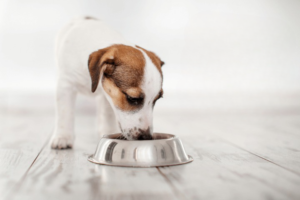Introduction:
Just like humans, our furry friends need protection against diseases that can threaten their health and well-being. Pet vaccinations play a crucial role in safeguarding our beloved companions from potentially deadly illnesses. In this blog post, we’ll explore why vaccinations are necessary for pets and how they contribute to keeping them happy and healthy throughout their lives.
Why Are Vaccinations Necessary for Pets?

- Preventing Serious Diseases:
Vaccinations are designed to stimulate a pet’s immune system, preparing it to fight off specific viruses and bacteria. By administering vaccines, we can prevent our pets from contracting severe and sometimes life-threatening diseases. Diseases like rabies, distemper, parvovirus, and feline leukemia can be devastating to pets, but vaccinations provide a shield of protection against these threats.
- Protecting the Pet Population:
Vaccinations not only safeguard individual pets but also contribute to the well-being of the entire pet population. Through a concept called “herd immunity,” when a large portion of the pet population is vaccinated, the spread of contagious diseases is significantly reduced. This protects not just vaccinated pets but also those who may not be able to receive vaccinations due to health conditions or age.
- Cost-Effective Health Care:
Prevention is always better than treatment. Vaccinations are a cost-effective way to avoid expensive medical bills that may arise from treating severe illnesses. The cost of vaccinating a pet is much lower than the expenses involved in treating diseases like parvovirus or distemper, which often require extended hospitalization and intensive care.
- Public Health Concerns:
Certain diseases that affect pets, such as rabies, can be transmitted to humans, posing a significant public health risk. Vaccinating pets against rabies not only protects them but also helps control the spread of the disease to people. Many countries and regions have mandatory rabies vaccination laws to ensure public safety.
- Lifelong Protection:
Vaccinations provide pets with long-lasting protection against diseases. While some vaccines require booster shots to maintain immunity, many vaccinations offer years of defense. Regularly scheduled vaccinations as part of a pet’s healthcare routine ensure they stay protected throughout their life.
Vaccination Schedule and Considerations:
It’s essential to follow a veterinarian-recommended vaccination schedule for your pet. Puppies and kittens typically require a series of vaccinations to build immunity, while adult pets receive booster shots to maintain their protection. The veterinarian will tailor the vaccination plan based on the pet’s age, health status, lifestyle, and risk factors.
Any petlovers planning to buy dog puppy then animalslover platform provide best quality pet at affordable price.
in this platform only present top ranking breeder which provide you qualiy puppies
Occasionally, some pets may experience mild side effects after vaccinations, such as mild fever or lethargy. These reactions are usually short-lived and outweighed by the benefits of protection against potentially severe diseases.

